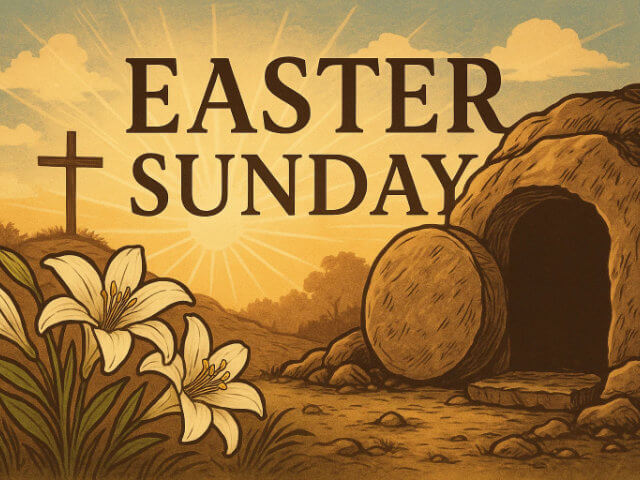Easter Sunday 2026
Date: April 5, 2026 (Sunday)
Country: Hungary Public Holidays
Description
Easter Sunday in Hungary is a Christian holiday that celebrates the belief that Jesus rose from the dead. For many people it is a time of hope, new life, and spiritual renewal after a solemn period.

The date changes each year. It falls on the first Sunday after the first full moon that occurs on or after March 21. This means Easter can come between March 22 and April 25.
Easter is the most important feast in the Christian calendar. Churches hold special services, and many people attend to mark the resurrection and to reflect on themes of forgiveness and salvation.
In Hungary the day is also a public holiday. Schools and many workplaces are closed, so families and communities can observe religious practices and spend time together without normal weekday duties.
Overall, Easter Sunday blends deep religious meaning with broad social importance. It marks a central moment in the year for both faith and community life in Hungary.
Traditions
On Easter Sunday in Hungary people follow lively folk customs. Boys and men sprinkle or gently splash girls with water or perfume while reciting short rhymes. This playful ritual is called locsolkodás and often happens early in the day.

Girls thank visitors by giving painted eggs called hímestojás. Eggs are decorated with wax resist, fine patterns, or onion skin dye. Many families wear or display embroidered tablecloths and folk costumes during celebrations.
Typical Easter foods include baked ham, smoked sausages, and a sweet braided bread called kalács. Families also enjoy a special Easter cake similar to kulich. Many households have a festive table with decorated eggs as a centerpiece.
Some people attend church services and light candles. Community events and folk dances keep old village traditions alive. These rituals mix family fun with bright decorations and tasty meals.
Travel Tips
Many shops and some museums close or have shorter hours on Easter Sunday. Public transport runs less often and trains and buses can be very busy. Book tickets and plan extra travel time. Carry some cash for small stalls and markets.
Join public events and markets early to avoid crowds. Keep personal items safe in busy places and follow signs or staff instructions. Check opening times online before you go and enjoy local food at a less crowded time, like late afternoon.